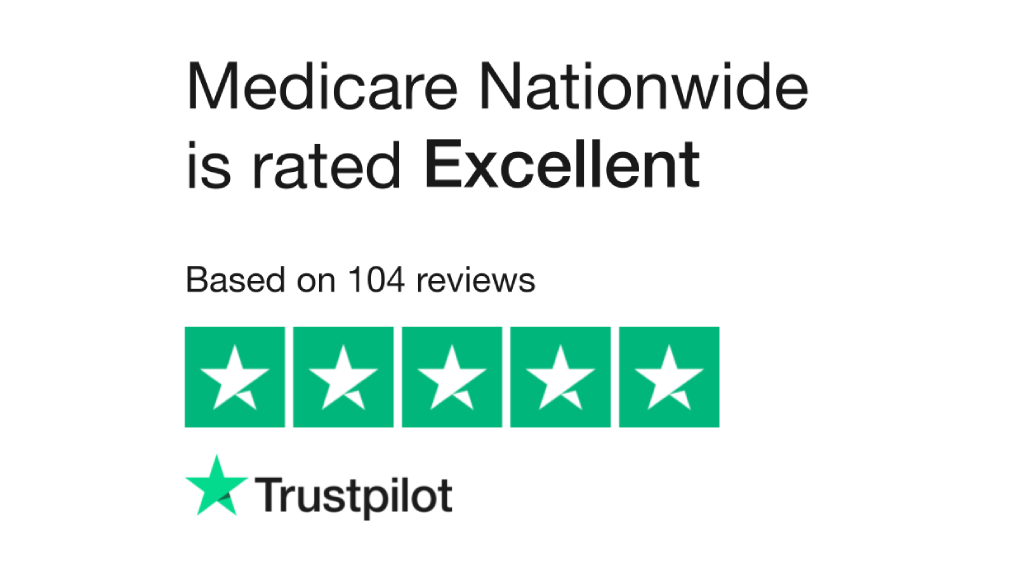
Can You Have Private Insurance and Medicare?
Yes, you can have private insurance and Medicare, and many seniors do. If you are still working and covered by an employer plan, you can have both. Maybe your spouse is working and you are covered under that plan. You can keep it and have Medicare.
You may be retired, but still receive health benefits for a limited time. You can also keep that. Having private insurance and Medicare has its benefits, but there can also be drawbacks. There are a couple of key components to understand how you should manage your coverage.
Who Pays First? Medicare or Private Insurance
First, you need to learn the lingo. Two terms are important when knowing who will pay first: “payer” and “coordination of benefits.” If you have Medicare, or any other health coverage, each type of coverage you have is called the “payer.” Knowing this term is helpful to know how your different coverages will interact, and also whether you have duplicate coverage.
“Coordination of benefits,” or COB, refers to who will pay first when there is an insurance claim. The primary payer will pay first, and the “secondary payer” will pay the remaining portion. Sometimes you will hear the “secondary payer” referred to as the “supplemental payer.”
How does this look for a real claim?
- The primary payer will pay up to the limits of its coverage.
- The secondary payer will only pay if there are costs the primary payer does not cover.
- The secondary payer may not pay all the uncovered costs based on their own policy language.
- If your employer (or private coverage) is the secondary payer, you may need to enroll in Medicare Part B before they will pay.
Let’s turn this into a real-life example. You go to the doctor and the services cost $300. The primary plan pays $150 of the cost. The remainder of the bill will go to the secondary insurer. If their plan covers all or a portion of the remainder, they will pay it. Any remainder will be sent to you.
This appointment is meant to alleviate any concerns and there is no-cost or obligation to make a change.
Should You Delay Signing Up For Medicare?
After turning 65, you can delay signing up for Medicare Part B, IF you have group health insurance through an employer (or spouse’s employer) that has over 20 employees.
If you sign up for Medicare while still working, the employer plan is Primary and Medicare is secondary.
If you work for a small company with group health, but fewer than 20 employees, Medicare usually pays first.
Some retirees continue to receive health benefits from their former employer for a period of time after signing up for Medicare. If you find yourself in this situation, Medicare becomes the primary payer and your private plan becomes a supplemental plan.
A Warning About Not Signing Up For Part B
If you do not sign up for Part B as soon as you are eligible for Medicare, there is a penalty that will be added to your Part B premium. And that premium will remain for the rest of your life.
There is an exception if you are covered under an employer’s plan. In that case, you can delay signing up for Medicare Part B while that insurance remains in force.
But as soon as you know the coverage is coming to an end sign up for Part B Medicare coverage to avoid the penalty. You have eight months after leaving your job or losing your coverage to enroll in Part B of Medicare. This should be plenty of time to sign up. It’s an easy process, and we can walk you through it if you need assistance.
There is no problem if you decide to sign up for Part B while covered under an employer’s plan. Part B Medicare will become supplemental coverage to your employer’s policy. Because there is a premium cost to Medicare Part B, you may want to weigh the premiums with the benefits you receive. More on that below.
Do you have an HSA account with your current employer?
Health Savings Accounts have certain rules once you become eligible for Medicare. You typically can only contribute to your HSA for the portion of the year when you were not enrolled in Medicare.
The Cost of Having Two Insurance Plans
What could be better than one insurance plan? How about two? Sounds great, doesn’t it? It could be positive, but the downside is you pay two premiums, two deductibles, and you have two plans to coordinate with. If you have two plans, you need to look at the costs to determine if you really benefit from paying both Medicare and private insurance premiums. The first step is to detail out your monthly and annual premiums for health insurance. Then look over your annual office visit costs and the total deductibles.
Doing this kind of analysis will help you determine if you are getting a benefit from the premiums you are paying for health coverage or whether you should reconsider your insurance plans. Sometimes gathering all this data and information can be cumbersome. Don’t feel bad reaching out to a professional to sort through the costs and value. Our agents at Medicare Nationwide do this every day for our clients.
In reality, if you don’t expect to see a doctor much and don’t have many prescriptions, having two health insurance premiums may not be worth it. Medicare Part A is hospitalization coverage. Part B of Medicare is coverage for medical expenses such as doctor’s visits. If you have worked for at least 10 years while paying Medicare taxes, Part A should be premium-free. Because of this, there is no reason not to sign up for Medicare Part A even if you are still covered under your employer’s health plan.
Most people pay for Medicare Part B as we have mentioned. You do not have to apply for Part B when eligible for Medicare if you are covered under an employer’s plan. You do need to when you lose your employer’s health insurance. By managing Medicare alongside your employer in this way, you can save money while increasing your health coverage.
Benefits beyond standard Medicare and Health Insurance
You should also consider what else your employer offers beyond basic health insurance in its group health plan.Most employers’ health plans also include prescription drug coverage and/or vision and dental. You will not have these under Medicare Parts A & B. Medicare Part D is the prescription drug plan. It would not hurt to get quotes on Medicare Part D coverage, because you may find cheaper premiums than what you could be paying through your employer’s plan.
Consider whether your employer’s health care coverage includes coverage for your spouse. Before fully dropping your employer coverage for all parts of Medicare, factor in the cost of your spouse finding other coverage. Medicare only covers individuals and not married couples or families like private insurance often does.
How Medicare Costs Compare to a Group Health Plan
Many people who worry about their health care wonder how Medicare costs compare to a group health plan. Medicare Part A is usually free. Part B costs $174.70 per month for most enrollees in 2024. You can delay purchasing Part B if your private insurance is less expensive. Don’t forget the Part B penalty and sign up for Part B as soon as you lose your employer’s coverage. You can even bundle this with a Medicare Part D prescription drug plan and a Medicare Supplement policy.
What you need to consider is not only the comparison of monthly premiums but potential out-of-pocket health care costs. This is where supplemental policies shine. They dramatically limit out-of-pocket expenses depending on what plan you choose. Because deductibles and co-pays for employer plans keep rising, many people find the out-of-pocket on private healthcare plans to be larger and more costly to their budget. Having Medicare as a secondary health care insurance could cut down on those out-of-pocket costs because of different deductible structures.
Medicare Supplements and Private Insurance Plans
One thing you will discover when reviewing the differences between Medicare and your employer’s healthcare coverage is there are gaps in coverage. There are still many places where your out-of-pocket costs can be high. For both Medicare and private plans, this usually takes the form of high deductibles or caps on the coverage amount.
Until you reach those deductibles, medical costs come out of your pocket. And if there are caps on coverages such as Medicare have, you pick up the remainder once you reach those limits. There are ways to cover those healthcare gaps that are affordable and provide a broad range of coverage. These policies are referred to as Medicare Supplements or Medigap policies. The coverage is regulated by the federal government but provided by private insurance companies
Medicare Supplement policies have various plans labeled Plan A through Plan G. Each plan gives differing amounts of coverage with a variety of premiums. Premiums vary not only based on the plan but where you live. You can purchase a Medicare Supplement without the need for health underwriting if you do so as soon as you are eligible for Medicare.
You can purchase Medicare Supplements even if you are covered under your employees plan. You may even be able to get your employer to pay all or a portion of the cost of a Medicare Supplement policy. Normally your employer could not fund your Medigap policy, but there is an exception – the Section 105 Reimbursement Plan.
If your employer has set up a Section 105 Reimbursement Plan it will allow the employer to deduct expenses for employees who purchase individual health insurance plans like a Medicare Supplement. If this Reimbursement Plan is in place, the employer can reimburse premiums for Medicare Part A and B, and for Medigap plans. It pays to check with your employer to see if they have set such as plan. It is worth getting a full analysis of all your costs and coverage. You may be able to trim dollars off your health care costs while keeping or even enhancing your insurance coverages.
This appointment is meant to alleviate any concerns and there is no-cost or obligation to make a change.
Contact Us if You Have Questions About Medicare Coverage
We know we threw a lot of information at you with this article. You should have a better understanding of how a private health insurance plan and Medicare work together. You can have both, but instead of just signing up and letting your coverages and premiums continue, it pays to look at what you are getting. You improve your healthcare coverage by structuring your plans differently.
If you have questions about your Medicare coverage options, and how they work with your employer coverage, you can contact us and speak with one of our licensed professionals. Our agents talk every day with Seniors and can help you wade through all your options to determine the best route for your best insurance value.
Prefer to chat by phone? Give us a call at 1-888-559-0103.


